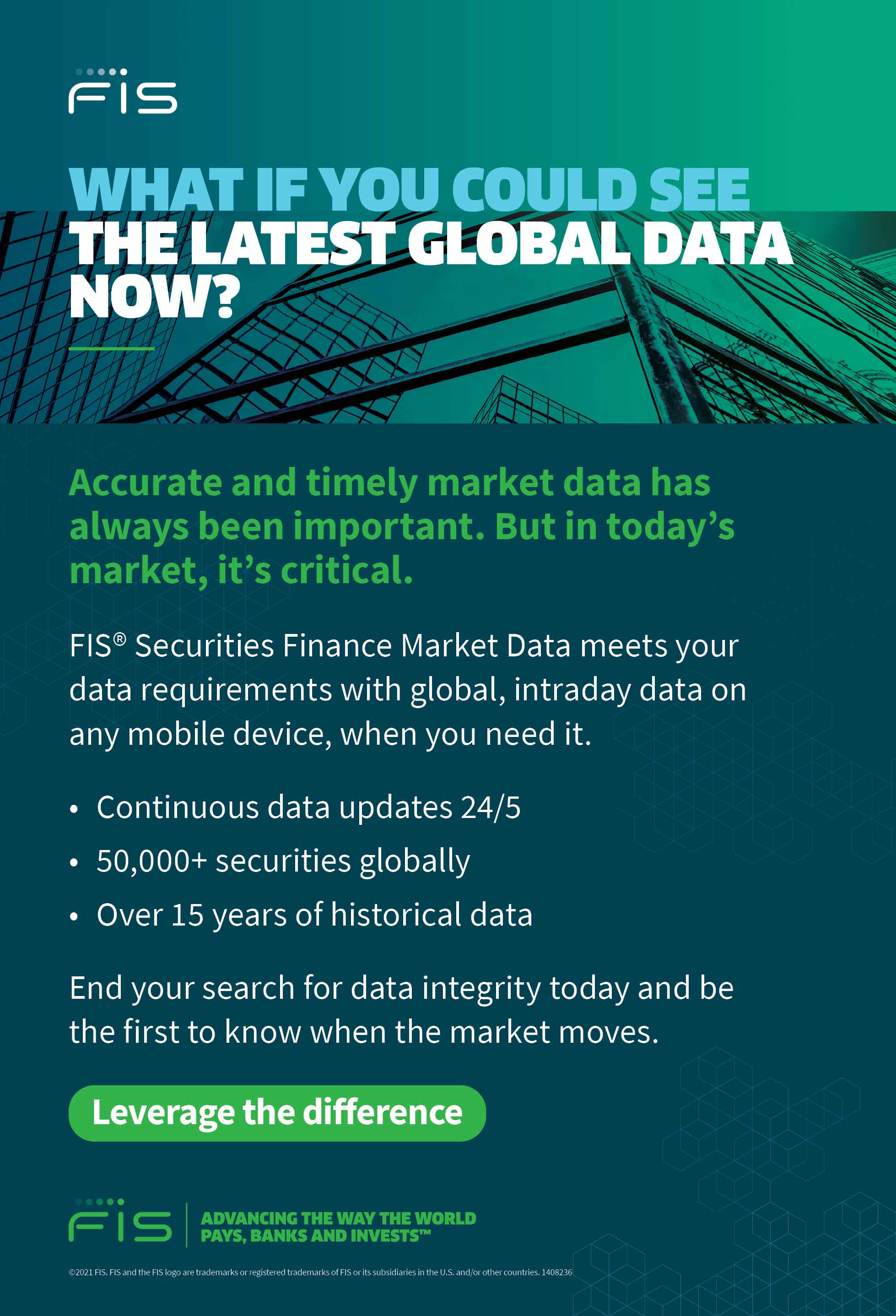FIS’ David Lewis welcomes the return of in-person conference sessions and assesses the merits of cooperative data sharing in advance of the ISLA conference in Vienna
This June sees the long-awaited return of the ISLA Securities Finance and Collateral Management Conference. Such forums are often the crucibles for new ideas and collaborations, innovative thought and even pushing the occasional boundary. Being invited to moderate a panel is a pleasure that has been sorely missed — and a session focusing on market collaboration, doubly so. That is not to say that virtual panels at other cyber events did not work and, indeed, they provided the best alternative to not meeting at all. But as we look back on the last two years or so, it must be asked whether virtual meetings could ever deliver collaboration as well as physically meeting together.
Much has been written and discussed about the impact that remote working has had on collaboration. Virtual meetings often focus on the set agenda, squeezing out the opportunity for a chance remark to spark off a totally new conversation and potentially different, unrelated outcome. But what if we systemise or industrialise that collaboration? Perhaps it could be made part of the process of product and service development instead of leaving it to chance meetings in the corridor, at your desk or the kitchen.
Deep involvement in the cooperative data space over the past 20 years has demonstrated the advantages and obstacles attached to cooperative data sharing. Significant effort has been expended, and continues to be spent, on privacy and anonymity, obfuscating contributors’ positions and strategies while ensuring the maximum positive impact of the data is shared to the benefit of the whole group. If it is fair to say that this innovation has been a success and brought an overall positive impact to the securities finance market then, logically, replicating that process could bring benefits to other areas of the market and the clients they serve.
Beyond the hive mind
Without wanting to pre-empt some of the issues that will be addressed on the panel itself, consider the possibility that there are joint endeavours that can benefit the whole market — while not necessarily giving anything proprietary away to the competition. Take regulatory compliance, for example. Regulations are often open to a degree of interpretation. Witness some of the requirements in the Securities Financing Transactions Regulation (SFTR) documentation and the confusion these caused. However, also witness the multiple, often trade association led, working groups that pored over every article with the objective of developing an industry-wide best practice for the requirements. This was, in effect, a manual version of open-source software development.
Open-source software as a concept used to be sufficient to cause serious anxiety for any technology security chiefs, but now many of the major banks and technology providers are actively involved in such projects, keenly sharing data models with other market participants and even competitors. The key characteristic is that such activities are limited to areas of work that are considered non-competitive, such as regulatory reporting. Appealing to the “hive mind” can benefit all its members as the collective experience and abilities are brought to bear on complex issues. Effort does have to be expended on ensuring the negative aspects of the hive mind (sometimes referred to as “group think,” where members blindly accept the decisions of others) are kept at bay.
Access to, and processing of, the required data is also a major hurdle. Examining your own data – such as trade settlement performance – is valuable. But comparing it with others — for example, to identify outlier events — is vital to understand where improvements may be made. In a relationship business, settlement performance is likely a factor when grading counterparties, but it is a negative one or a “hygiene factor.” If all parties scored 100 per cent, then no one gains an advantage but the whole market moves forward and benefits. At FIS, we are looking at pre- and post-trade data (along with wider market supply and demand dynamics) to develop predictive analytics for trade settlement. There are clear benefits to the individual market participant, of course, but the whole market will benefit from greater settlement certainty.
According to a 2021 survey by Deloitte, nearly 70 per cent of consumers believe that the financial institutions that serve them need to increase their efforts to improve data protection. On the basis that the end user is concerned about protection of their data, it is safe to assume that financial institutions, as custodians of that data, will be very reluctant to share their clients’ information at any level for fear of alienating their client or crossing the regulators.
Getting the owners of the data comfortable with what is shared is key, although it only takes a moment to click on “manage my options” instead of simply “accept cookies” to realise just how many third parties already hold significant information on where you have been and what you have bought. The concept of differential privacy will certainly have a part to play in the protection of both consumer and institutional data, but adoption is not yet widespread.
Once that data is accessible, turning it into actionable information that can be understood by legacy technology is the next major hurdle. Again, collaboration will be key in the generation of market standards and models, with the Common Domain Model (CDM) being a prime example impacting the securities finance market right now. Such initiatives require the lowering of protective barriers around all data and replacing them with protection around only that data which represents proprietary and intellectual property.
The final hurdle to the successful collaboration of institutions across wider segments and types of data will be regulation. Much of the present regulation affecting our marketplace defines what must not be done, as opposed to what activity or level of transparency might be encouraged for the benefit of the market. With the speed at which the market for data is advancing, whether that is the transactions on your credit and debit card or the lending and borrowing of securities between institutions, the opportunity for intelligent self-regulation is obvious. Best practice standards for the gathering, processing and use of anonymised data should provide confidence for both the client and the regulator, but only if it is done in the right way. Perhaps the development of these standards is the next major challenge for the hive mind of the securities finance and collateral management market.


